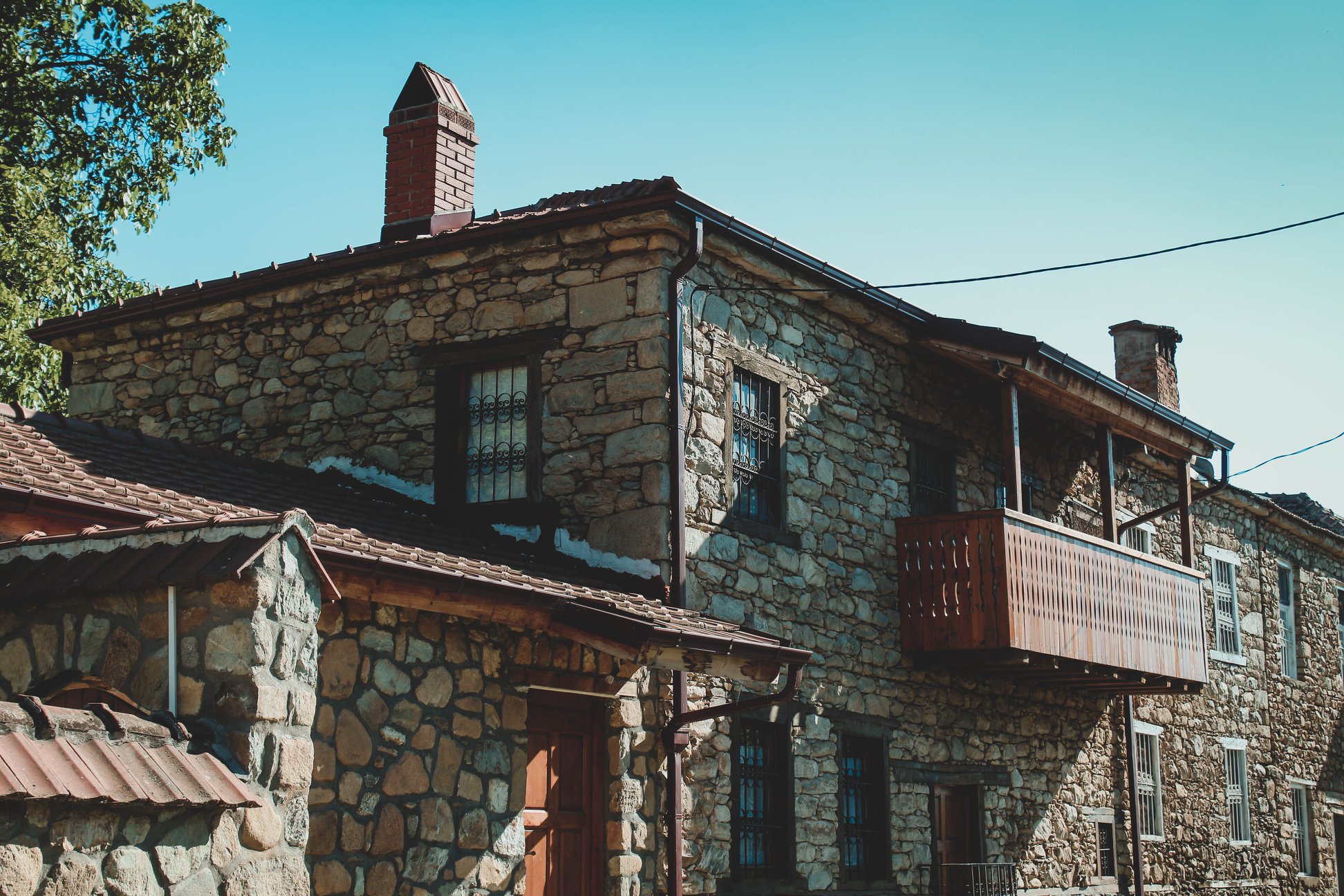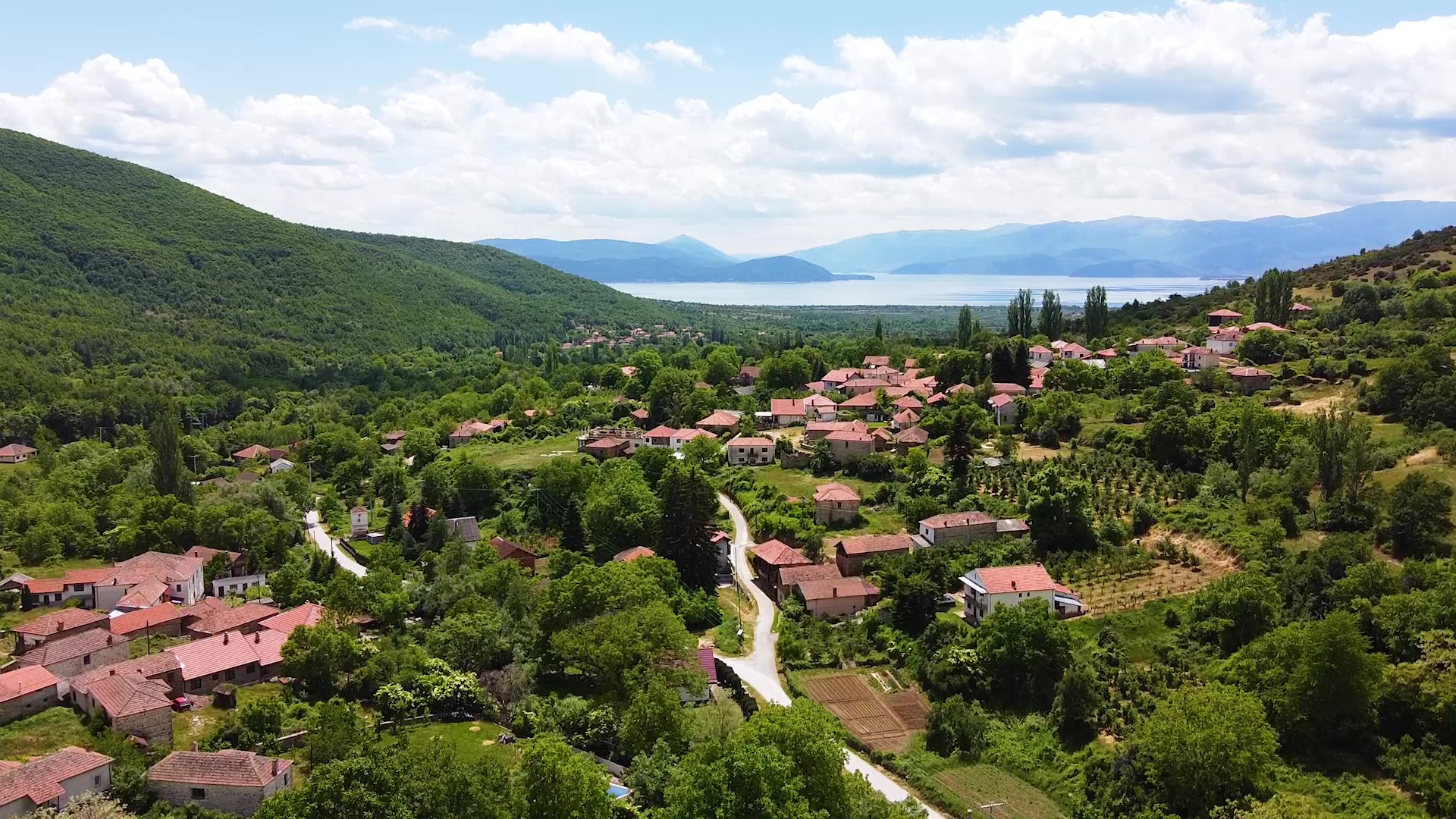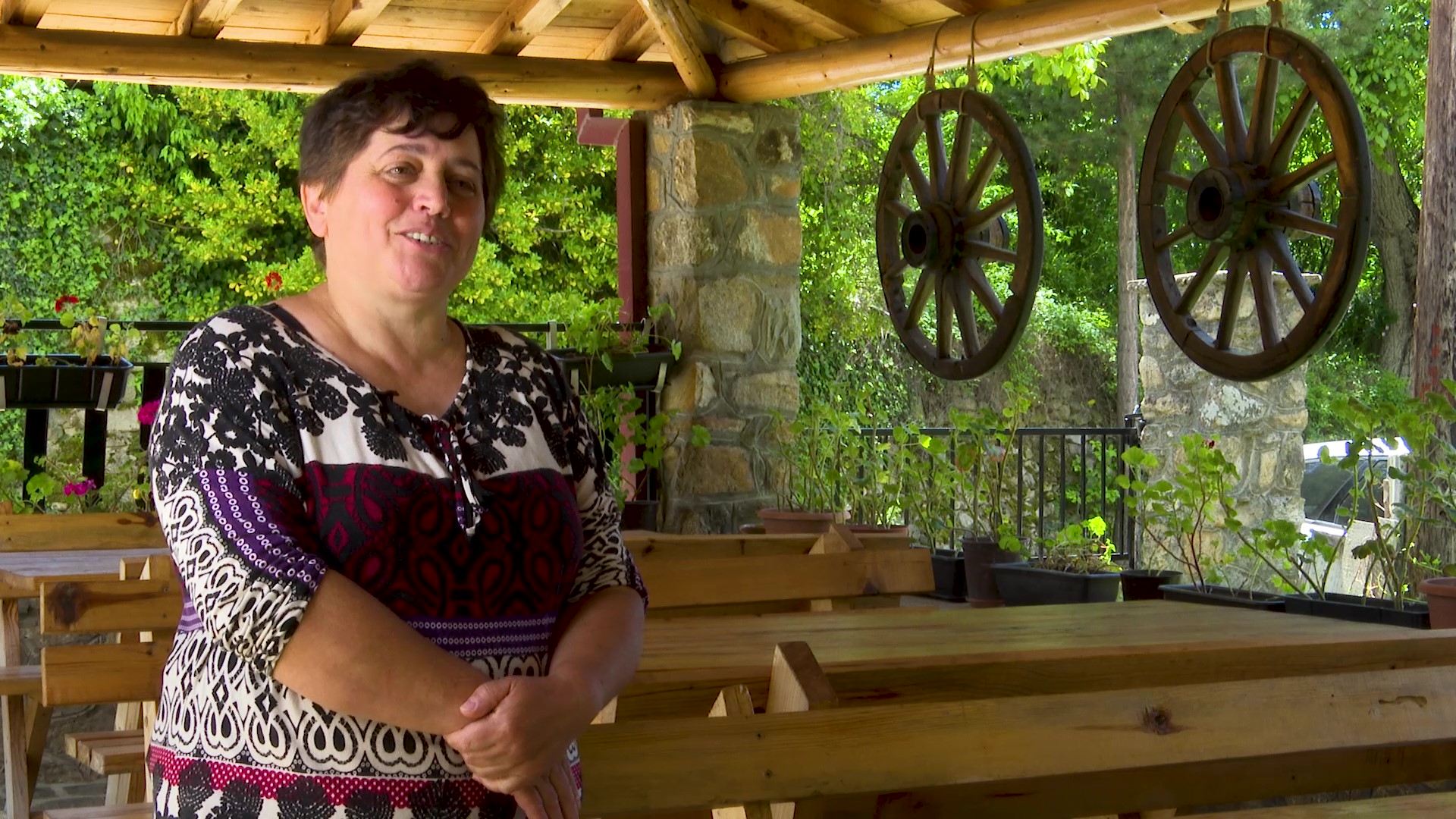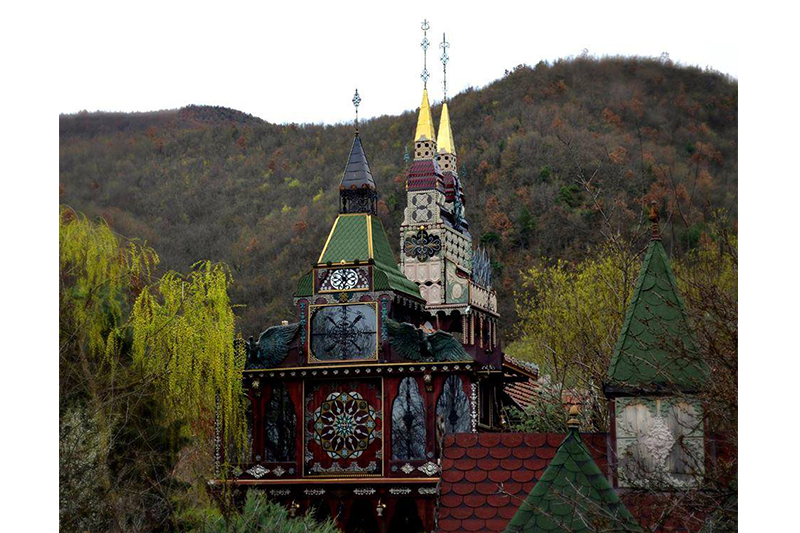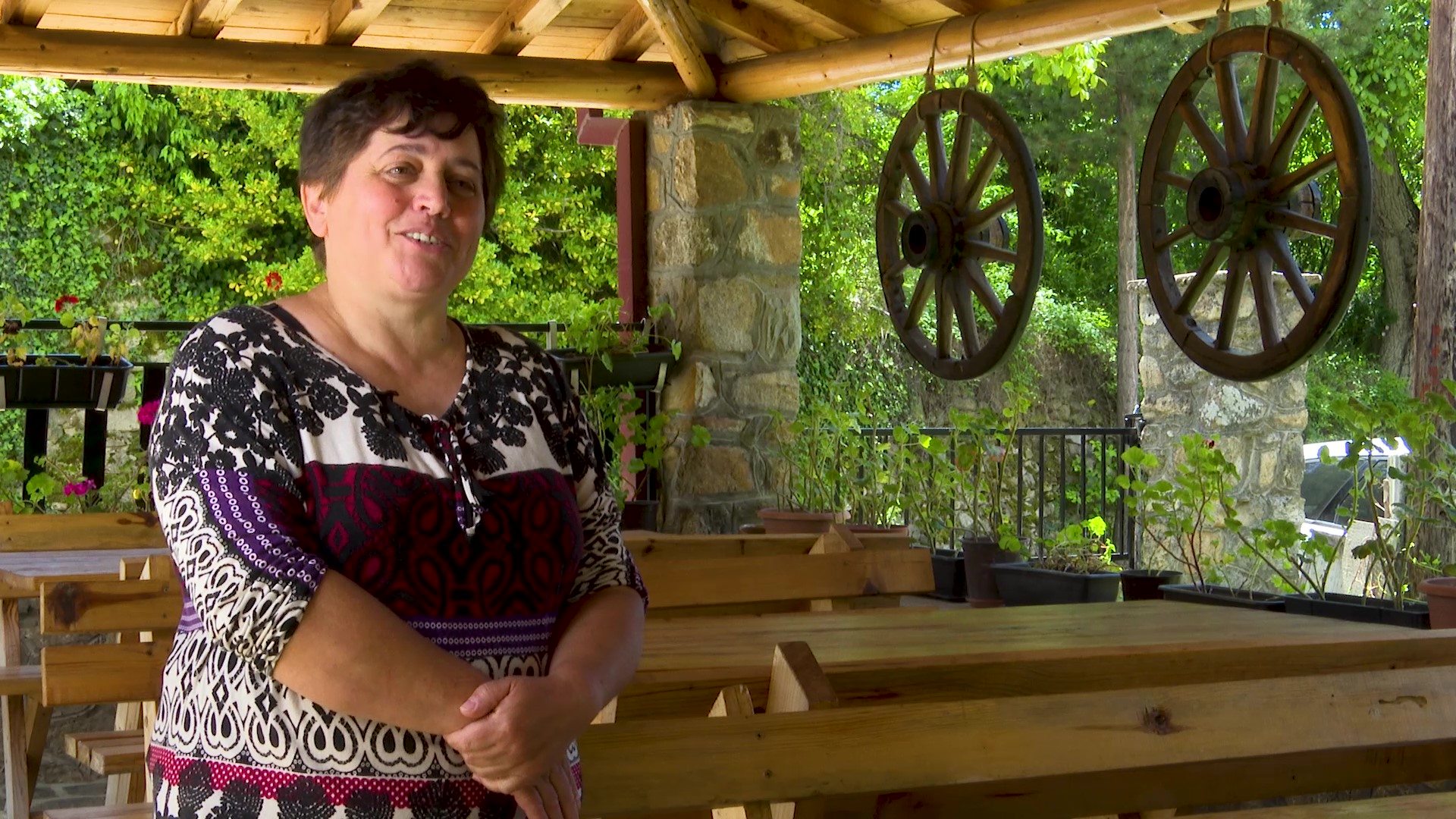Old country house in the village of Ljubojno, known for its well-preserved traditional architecture.
What the ISS can teach us about national development planning
For the past 20 years there has been a continued presence of people in space, working in orbit on board the International Space Station (ISS). More than 240 individuals from 19 countries have visited the station – the home of scientific discoveries that could not have been made elsewhere as the ISS is the only laboratory where long-duration microgravity research is possible. The origin story of the ISS takes as back to 1998 when fifteen governments decided to collaborate on the design, development, and utilization of the space station. Today, the ISS is arguably one of humanity’s greatest technological achievements and a testament to the power of international cooperation. But it doesn’t stand alone.
International relations are filled with cases of countries, organizations, individuals, and other stakeholders recognizing their mutual interests and building future-oriented plans and activities aimed at achieving common goals. A look into the most ratified treaties in international law tells us that many of the international projects we take for granted today, are very much the result of collaboration, future thinking and partnerships developed among different parties. The activities and organizations that result from these types of collaborative processes are by no means flawless and critics will happily point out the deficiencies, embedded imbalances and other challenges, but the fact remains that their existence is overall beneficial as an engine for progress and the betterment of people’s lives. The process of entering mutually beneficial enterprises between states and other actors have long been recognized by International Relations scholars as “positive sum game” and “win-win” scenarios. By recognizing common interests and adopting a partnership approach, agreements and actions that are mutually beneficial can be born among states.
One can easily transfer these lessons in collaboration, coalitions, and partnerships from the realm of global to national policymaking process. Strategic alliances, partnerships, networking have become particularly relevant in the process of defining “strategic development intentions (and directions)”. Coalition building allows for different stakeholders to share ownership of the process and consequently of the results, making the goals more attainable and realistic due to a shared sense of responsibility. Today, in an era of increasingly polarized politics, this approach is of significant value. Coalition building can help societies overcome the partisan divide and rally behind common goals for the benefit of all citizens. As stated in the overview of the Finnish “Humble Government” approach to policymaking, “for government to fulfil its pledge to long-term policy-making, it must find new pathways for building political and societal consensus around pivotal challenges.”
Coalition building, reaching some consensus on governing processes, is one of the principles we would like to see more in our national policymaking as well, both in the design process of public policies and in their implementation. Towards that end, back in December 2020, UNDP published an article advocating for a nationwide strategy for development built on the principles of collaboration, inclusiveness, transparency, adaptability, and expertise, a need made more urgent by the ongoing pandemic. The complexity of the challenges facing us today demands that we work towards a cross-sectoral and cross-generational development strategy, one that is sufficiently agile to steer a society in unpredictable and ever-changing futures.
This idea for a National Development Strategy built on these principles is supported by most citizens in North Macedonia, 62% of the respondents (from a nation-wide survey) think that the general public should be included in the process of creating the Strategy, and 89% believe that the strategy can improve their quality of life, if adopted. Citizens also agree that the country needs a future with more decent jobs, quality healthcare and education, good governance and a better standard of living. Another survey done for the Republic of North Macedonia United Nations Sustainable Development Cooperation Framework 2021-2025 found that 75% of the citizens consider the creation of a national vision as one of the most urgent priorities for the country.
So, the central question is: Can we rally behind a common vision to realize these shared priorities?
To answer this question positively, it is crucial to start doing things differently. We will have to redesign the way our public institutions develop and implement their long-term visions and plans for the country and ensure that people are empowered to be the drivers of change, with strong ownership over the processes.
Counting the beans
So, how do we co-create a common vision for the future? Where do we start?
First, we need to recognize that social capital has become an essential element of sustainable development. Therefore, the networks of relationships among people in a society such as shared values, trust and collaboration must be central in the planning process. A study of 107 development plans found that collaboratively created plans with high social embeddedness have improved prospects of successful implementation. Several arguments can be made to support this claim. To start with, inclusivity, leaving no one behind are, morally speaking, the right things to do. Everyone should have a say in shaping the vision for the future, especially those that are the least well off in the present. It is the commitment of all UN member states to end exclusion and build effective, accountable, and transparent institutions at all levels. If we are to realize the Agenda 2030, there needs to be a truly open space where all segments of society are empowered to provide meaningful contributions and effectively shape priorities and policy.
Pushing for broad societal participation in national planning is also justified on practical grounds as it has proven to be a more effective approach than relying solely on experts.
Consider this experiment to illustrate the point: Imagine a room with a big glass jar filled with jellybeans. Visitors are asked to look at the jar and guess the exact number of beans in it. The one that guesses the right number wins the jar. It has been shown that the average of all guesses will be closer to the correct number than any of the individual guesses. In other words, the collective (provided it is sufficiently diverse) is wiser than the individual – an effect that has been demonstrated through the jelly bean experiment and that has been replicated i many others. While long-term national planning is ‘slightly’ more complex than counting jelly beans, collective intelligence has proven itself invaluable in tackling social problems. To understand where we stand as a society, and where we want to be in 20 years, we will have to take in all perspectives. The more diverse the participation, the higher the quality and longevity of the vision.
Ensuring wide participation however does not guarantee success by itself. In times of
globally declining trust in governments, NGOs, and the media, the pandemic showed that “trust strongly correlated with citizens’ compliance to measures designed to flatten the infection curve” (Bargain and Aminjonov, 2020). Even the most thoroughly thought out policies will fall flat if they are not seen as credible or equally applied. Worse still, lack of trust “nurtures political polarization, and favors the emergence of populist movements” (Devine et al. 2020). Therefore, if it is to succeed in implementation, the National Development Strategy must be developed through a transparent, well designed, organized and communicated process in which national priorities are co-created by a wide range of stakeholders using a credible, future oriented methodology. This ensures broad societal trust, ownership and support for the chosen direction and stimulates citizens to actively contribute as well as safeguard the vision by holding the state accountable for its implementation.
UNDP and UNHCR decided to reinforce their collaboration to promote a just path to sustainable development reflecting the perspectives of those on the margins. We believe that the core principles outlined in this text would be a small but important step towards creating and implementing a common vision turned into shared goals. The willingness of the Government to prepare a National Development Strategy and its openness to embrace our ideas and support, has been an excellent platform for the United Nations Country Team to propose a tailor made new innovative process for the creation of the strategy, one that is built on a methodology that answers to the latest global developments, and leaves no one behind.
The Municipality of Resen in North Macedonia is an area with excellent predispositions and resources for developing rural tourism, which unfortunately has yet to be utilised. This was the case up until a group of enthusiasts gathered in several civil society organizations and decided that the time had come to present their region to locals and travellers from around the world.
The Prespa region is considered an important reservoir of biodiversity and natural production. The Municipality of Resen is located in the Prespa Valley and set between several mountains. This region is located on the border between North Macedonia, Albania and Greece. The area is considered an ecological entity of global importance due to the variety of biotopes with lakes, mountains and forests that have distinctive and unique features. Lake Prespa and two national parks are within its territory, making Resen an important point in North Macedonia’s tourism offer.
To make this wonderful rural landscape more accessible to visitors, UNDP North Macedonia worked with local civil society organizations through the Regional Programme on Local Democracy in the Western Balkans (ReLOaD) in order to expand the rural tourism capacities in the region. This initiative was funded by the generous support of the European Union and co-financed through the partnership with the local government.
The Association of Fruit Manufacturers ‘Blagoj A. Kotlarovski’ from Resen helped a dozen families from the villages of Brajchino, Ljubojno, Krani, Arvati and Slivnica to practice rural tourism by enhancing their awareness and knowledge on how to improve their accommodation capacities and manage family owned businesses.
Nestled between the mountainous national park Galicica and Lake Prespa, the region’s villages are a perfect starting point for a variety of outdoor adventures.
Frosina Gjorgievska from the Association of Fruit Manufacturers in Resen said, “We had three types of training. The first was an introduction to the EuroGites standards used in tourism. The second training was on marketing and e-opportunities that are currently offered for presentations through Booking.com and other websites. The third training was for the exchange of experiences. For that reason, we visited the village of Omorani where people successfully practice this type of tourism.”
Within the project ‘Rural Tourism: Possibilities for sustainable development of the local community’ they have prepared a joint website, a joint Facebook profile and a Twitter account.
This project aimed to promote the development of rural tourism in the Municipality of Resen and at the same time boost the local economy and living standards. The main objective was the sustainable development of rural areas through the exchange of knowledge and enhanced cooperation between civil society and the local government. Furthermore, the focus was on the social empowerment of women through direct learning and exchange of experience.
The country house Villa Kostovski in Brajchino was one of the dozen households that learned how to promote rural tourism near Lake Prespa through this project. Divna Kostovska, owner of the Villa Kostovski in Brajchino, said that they rent four rooms with eight to ten beds and mostly welcome travellers from Austria, Germany, Sweden and the Netherlands.
“I can’t say that I speak English fluently, but I manage even though it may not be grammatically correct. We often joke [with my husband] that since none of our guests have attacked us, we surely haven't said anything too bad yet!”
Nowadays, through internet access it is very easy to get in contact with Villa Kostovski since their offer is available on social networks and the most important websites for tourist accommodation. Yet Divna Kostovska believes that the best advertisements are person to person recommendations.
“You may find us online wherever you search for accommodation in Brajchino and we are also presented on the website of Brajchino: all accommodation facilities are listed there. But the best advertisement is when the information is shared from person to person. Satisfied guests tell other potential guests about us, so they come to visit and then tell further on.”
Seeking to continue living and working in their native Brajchino, Divna Kostovska and her husband turned their rustic home into a popular B&B.
A 33-kilometre long bicycle trail was marked as a part of this project. It starts exactly from Brajchino and goes to Dolno Dupeni, Slivnica and Nakolec before returning to Brajchino.
Development of tourism in rural areas of the Municipality of Resen was the focus of one more ReLOaD initiative in North Macedonia. To encourage local stakeholders to think in a more innovative manner, enthusiasts from the Local Action Group ‘Prespa’ created a website to promote the entire Prespa region. They developed the mobile application ‘Prespa2Go’ and filmed several videos that promote hiking, biking, motor and off-road trails.
The project ‘Prespa2Go’ included the involvement of young volunteers. Several workshops were organized for the local population in order to raise their awareness about the resources that their municipality has to offer as well as to develop an entrepreneurial mind-set among them.
When developing a sustainable tourism offer, it is impossible to separate the natural beauty and the cultural heritage of the region. Whole of North Macedonia abounds with a variety of cultural monuments dating from its rich historical past.
This is also the case with the Municipality of Strumica, where the civil society organization ‘Kult-Tranzen’ works to improve the tourism offer by mapping the main cultural landscapes and monuments. They created the destination website www.discoverstrumicacity.mk to make information on historical, cultural and artistic attractions in the municipality easily accessible to travelers.
Another ReLOaD initiative implemented in North Macedonia was the project ‘Strumica as a Cultural and Historical Tourist Destination’, which aims to foster sustainable social development of the area whilst promoting cultural tourism.
The picturesque art gallery of local academic painter Nikola Pijanmanov, with its unusual cathedral-inspired architecture, has become a tourist attraction in its own right.
Jasmina Pijanmanova from the association ‘Kult-Tranzen’ said, “Perhaps the people from Strumica and Macedonia are aware of Macedonia’s potential for the development of tourism; however, we don’t know how to care for our heritage properly and how to properly present it.”
Young unemployed people were engaged in creating the tourism offer and promoting cultural heritage, while another 20 young people underwent training for tourist guides. Two tourist trails were created to display the cultural and historical heritage of Strumica, and volunteers placed tourist information signs at the most prominent areas and locations.
All projects within the ReLOaD initiative were implemented through cooperation between local civil society organisations and local governments. Both the Municipality of Strumica and the Municipality of Resen have made significant efforts to raise awareness among the local population regarding the potential for developing tourism.
Although the COVID-19 crisis is an immense challenge for tourism both globally and in the region, domestic rural tourism is among the best choices available at this time. The focus on small groups and outdoor activities brings greater security from the pandemic compared to mass tourism and domestic travellers can contribute to the survival of many small businesses that survive through rural tourism.
From the beginning of 2017 up until the end of 2020, in addition to reinforcing rural development, the ReLOaD programme in North Macedonia supported projects that contribute to youth activism, social inclusion of marginalised groups, women’s empowerment and environmental protection in Gostivar, Kavadarci, Kumanovo, Resen and Strumica.

 Locations
Locations